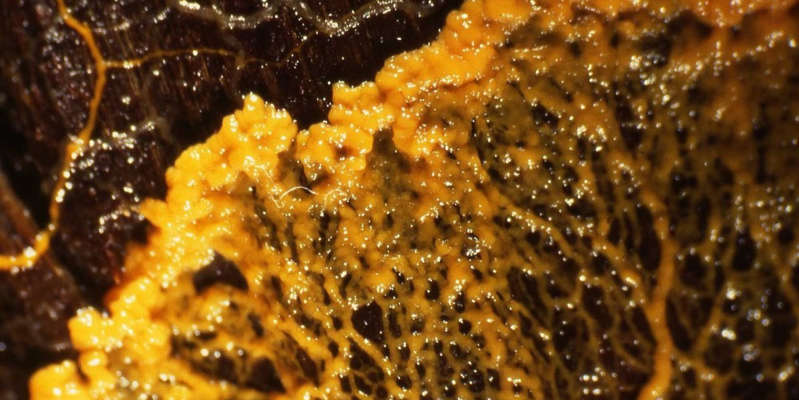Brainless slime mold learned to make decisions
The ability to make decisions was found not only in highly developed species. Scientists have found that it is inherent in creatures that are completely devoid of a brain – Physarum polycephalum slime molds, according to Advanced Materials.
These are single-celled organisms that live in a humid and semi-dark environment. A new study has shown that they do not move randomly, as previously thought, but purposefully. They examine their environment to determine where to move.
“People are increasingly interested in Physarum because it doesn't have a brain, but it exhibits behaviors that we associate with thinking,” said neuroscientist Nirosh Murugan of Algoma University in Canada.
Physarum polycephalum is neither an animal, nor a plant, nor a fungus. He belongs to the group of protists. These microorganisms most often live in the forest floor and contribute to the decomposition of organic matter.
Physarum is born as many separate cells, each with its own nucleus. The cells then fuse to form a plasmodium: a large single cell containing millions or even billions of nuclei floating in the cytoplasmic fluid.
At this stage, the protist moves, feeds, and grows. Observations have shown that Physarum is able to go through labyrinths, remember the places where it previously found food, and even share these memories with relatives.
As part of the experiment, scientists placed slime molds on a layer of gel in a Petri dish. One glass disk was placed on one side of the cup, and three disks placed side by side on the other. A few days later, it turned out that the slime mold began to move confidently towards the three discs.
The scientists concluded that the discs deform the gel in a special way, and Physarum polycephalum reacts to them as a possible food source. In the absence of a nervous system, it monitors changes in the environment through body movements and internal cytoplasm.
The authors of the study concluded that single-celled organisms, although devoid of a brain, may have a primitive consciousness that controls their activities. Earlier it was reported that a seaweed with three sexes was found in Japan. This is the first case of its kind.

